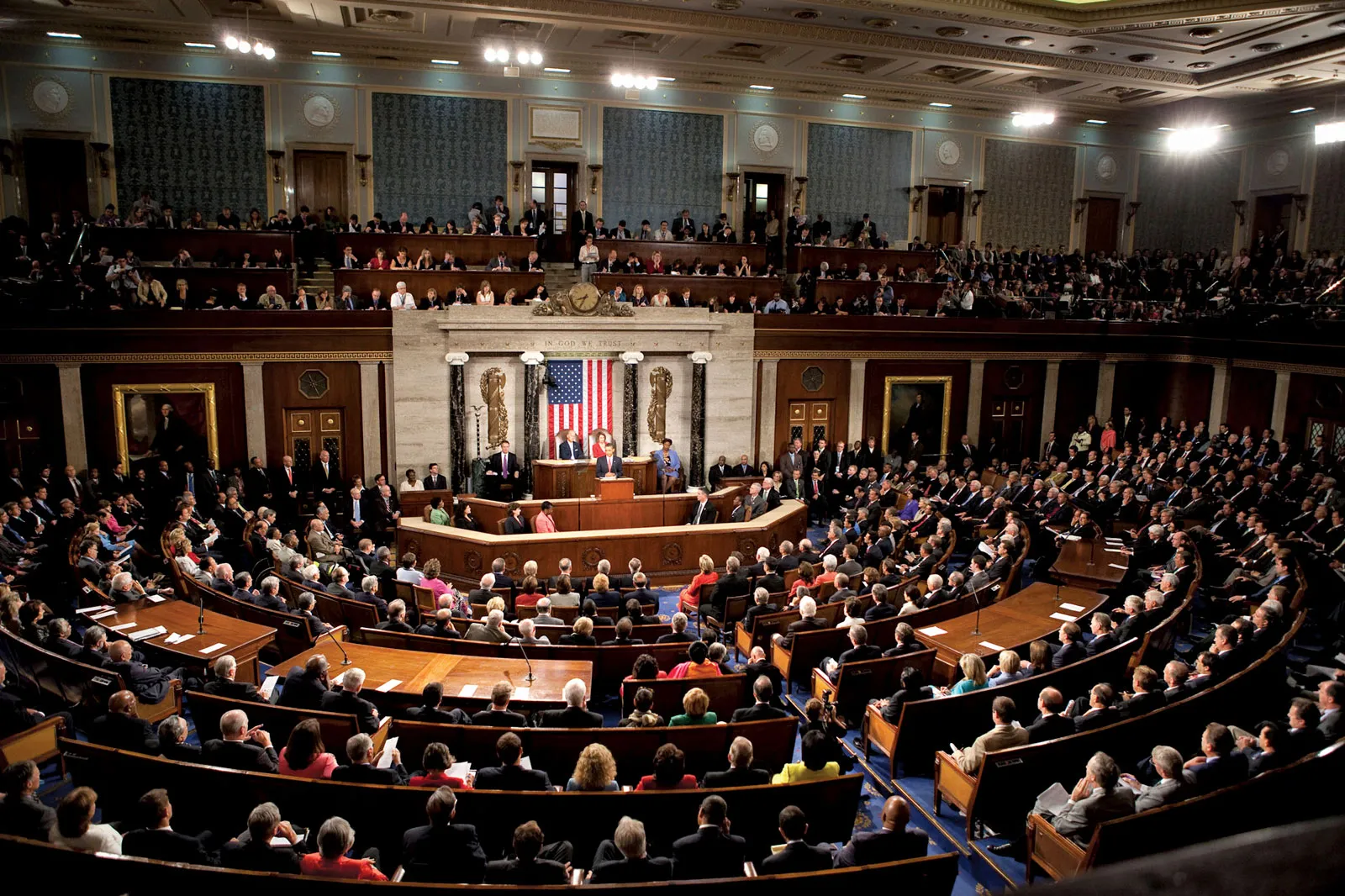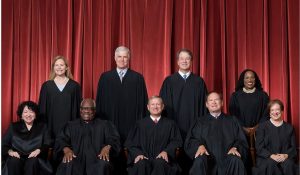The U.S. House of Representatives was thrust into the center of a widening controversy this week after lawmakers failed to censure Delegate Stacey Plaskett, a Democrat representing the U.S. Virgin Islands, for text communications she exchanged with Jeffrey Epstein during a 2019 congressional hearing. The vote, which unfolded late Tuesday night, fell short after several Republicans broke ranks, allowing Plaskett to avoid formal censure and removal from her position on the House Intelligence Committee.
The episode has stirred intense debate in Washington and across the country, touching on issues of ethics, judgment, congressional standards of conduct, and the broader political landscape surrounding the ongoing release of documents tied to Epstein’s dealings. With both parties keenly aware of the public’s heightened interest in transparency related to the Epstein investigations, the failed censure vote has only amplified scrutiny on Capitol Hill.
The Vote That Split the House
The final tally—214 to 209 against the censure resolution—illustrates how divided the House has become on matters that intertwine ethics with partisan strategy. Although Republicans hold the majority, three GOP members voted against the measure, while another three declared themselves “present,” preventing the resolution from reaching the necessary threshold. Their defections surprised many in their own party who believed the vote would be an easy victory, particularly given the explosive nature of the allegations.
The resolution sought not only to censure Plaskett but also to remove her from her role on the House Intelligence Committee and refer her conduct to the House Ethics Committee for further review. The failure of the measure marks a notable setback for Republican leadership, who have increasingly focused on the recently disclosed documents stemming from Epstein’s estate and their potential political ramifications.
The Text Messages at the Center of the Storm
The controversy erupted after the House Oversight Committee released a large tranche of documents obtained from Epstein’s estate. Among the materials were text messages exchanged between Epstein and Plaskett as she prepared to question Michael Cohen, the former personal attorney to then-President Donald Trump, during a high-profile 2019 congressional hearing.
According to the released documents, Epstein relayed suggested lines of inquiry to Plaskett. One such recommendation urged her to confront Cohen regarding the role of a longtime Trump executive. Following her questioning during the hearing, Epstein reportedly sent another message praising her performance.
Republican critics argue that these communications raise serious concerns about Plaskett’s judgment and the propriety of accepting guidance—even informally—from a convicted sex offender. They contend that the texts could reflect an improper influence in the execution of congressional duties, particularly in a hearing involving presidential conduct and matters of national significance.
Representative Ralph Norman, who introduced the resolution, framed the situation as a grave ethical breach. He said that members of Congress owe the American people a standard of integrity that precludes any coordination—real or perceived—with individuals who have engaged in criminal activity. In his comments before the vote, Norman stated that relying on suggestions from a known predator demonstrates a severe lapse in judgment inconsistent with congressional responsibilities.
Plaskett’s Defense and the Democratic Response
Delegate Plaskett has insisted that the messaging exchange has been mischaracterized and taken out of context. She maintains that Epstein was one of several individuals texting her during the hearing—a common occurrence for lawmakers during high-profile proceedings. In her public statements, Plaskett has emphasized that she is an experienced prosecutor with extensive background conducting examinations and gathering information from a variety of sources, including individuals involved in criminal activity.
She argued that engaging with constituents, even those with complex or troubled pasts, is part of her responsibility as an elected representative. Plaskett noted that Epstein owned two properties in the U.S. Virgin Islands and therefore fell within her constituency at the time. She asserted that the exchange did not influence her questioning, nor did it involve any inappropriate coordination.
Democratic leaders supported her position, portraying the censure attempt as a politically charged maneuver aimed at manufacturing scandal in the midst of renewed national focus on the Epstein files. Several Democratic members argued that the texts, while questionable in appearance, did not rise to the level of a formal censure—an action historically reserved for the most severe instances of misconduct.
The Broader Context: Epstein Documents and National Attention
Tuesday’s failed vote occurred just hours after the House voted overwhelmingly to direct the Justice Department to release additional files from its investigations into Jeffrey Epstein. That earlier vote, which enjoyed sweeping bipartisan support, reflects growing pressure from both the public and lawmakers for full transparency surrounding Epstein’s network and interactions.
For months, members of both parties have accused the previous administration of failing to release critical documents related to Epstein’s activities. The renewed push has been driven by widespread public demand and intensified by speculation that further releases may shed light on high-profile individuals—across political, business, and entertainment spheres—who may have been connected to Epstein.
The interplay between the failed censure vote and the broader push for document disclosure has created a complex political environment, where both misinformation and genuine revelations are circulating rapidly, often influencing public perception before full context becomes available.
Leadership Commentary Adds Fuel to the Fire
Comments from top political figures have only heightened attention on the situation. Statements from senior congressional leaders have underscored the political sensitivities surrounding the Epstein case. Some leaders have pointedly questioned why certain documents were not released earlier, fueling speculation of selective transparency.
Former President Trump’s recent comments backing the release of all Epstein-related materials have added additional political weight to the issue. He has publicly called on Republican majorities in both chambers to support full disclosure, insisting that transparency is critical and asserting that he has nothing to hide regarding Epstein.
Meanwhile, claims and counterclaims from both parties about potential associations between Epstein and political figures have further complicated the narrative. Some recent documents highlighted by Democratic members suggested possible ties between Trump and Epstein, although Republicans have dismissed those materials as misleading or insignificant, arguing that if meaningful evidence existed, political rivals would have leveraged it long before the 2024 election cycle.
What the Failed Censure Vote Means Going Forward
Although the censure resolution failed, the issue is far from resolved. The release of Epstein-related documents is ongoing, ensuring continued public interest and likely future political consequences. Some Republican lawmakers have hinted that they may introduce a revised resolution or pursue additional avenues to investigate Plaskett’s conduct.
For her part, Plaskett has signaled that she intends to continue her work without interruption, characterizing the attacks against her as partisan attempts to discredit her role on key committees.
The larger question now revolves around congressional standards: What constitutes unacceptable communication between elected officials and private citizens—particularly those with known criminal backgrounds? And how should lawmakers navigate interactions with such individuals when they are constituents?
The House has historically struggled to define ethical boundaries that account for gray areas between impropriety, poor judgment, and actionable misconduct. The Plaskett case highlights these ambiguities more sharply than most, revealing a Capitol increasingly polarized not just by party but by competing interpretations of what congressional ethics should demand.
Conclusion
The failed effort to censure Delegate Stacey Plaskett marks a significant moment in the ongoing political and ethical debates surrounding the Epstein disclosures. It raises profound questions about congressional conduct, constituent communication, and the standards elected officials should uphold. As more Epstein-related materials emerge, it is likely that scrutiny of figures across the political spectrum will intensify, potentially reshaping public understanding of the case and influencing future legislative actions.
For now, the House remains deeply divided—not just on the facts of the matter, but on what they signify about the expectations Americans should have for their representatives. The controversy surrounding Plaskett’s texts is emblematic of a broader struggle: determining where the line lies between legitimate constituent interaction, questionable judgment, and genuine ethical violation. As the nation awaits the next round of disclosures, the stakes—political, ethical, and institutional—continue to grow.

Emily Johnson is a critically acclaimed essayist and novelist known for her thought-provoking works centered on feminism, women’s rights, and modern relationships. Born and raised in Portland, Oregon, Emily grew up with a deep love of books, often spending her afternoons at her local library. She went on to study literature and gender studies at UCLA, where she became deeply involved in activism and began publishing essays in campus journals. Her debut essay collection, Voices Unbound, struck a chord with readers nationwide for its fearless exploration of gender dynamics, identity, and the challenges faced by women in contemporary society. Emily later transitioned into fiction, writing novels that balance compelling storytelling with social commentary. Her protagonists are often strong, multidimensional women navigating love, ambition, and the struggles of everyday life, making her a favorite among readers who crave authentic, relatable narratives. Critics praise her ability to merge personal intimacy with universal themes. Off the page, Emily is an advocate for women in publishing, leading workshops that encourage young female writers to embrace their voices. She lives in Seattle with her partner and two rescue cats, where she continues to write, teach, and inspire a new generation of storytellers.









